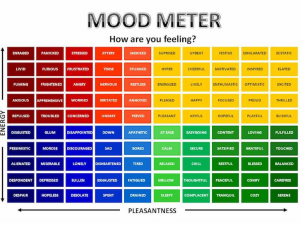In the career of social work it is important to act and present yourself as a professional. This competency shows how to be a professional and present yourself a professional through different systems including: micro, mezzo, and macro. This competency shows us how to deal with ethical dilemmas and how to do so in a professional manner. With this competency we establish professional roles and boundaries to accommodate client-centered care . This competency expands our knowledge to collaborate with other professionals and social work. I am also able to incorporate appropriate self-care in the professional field. I use this competency to learn how to use correct professional language and grammar when communicating with other professionals and others in emails, reports, intakes, and phone conversations. Through my social work journey, I learned about what was acceptable, be on time, and journaled about self reflection and correction. I was able to attain these skills and learn more about the field through my supervisors, case managers, and professors. Learning about this competency and using these skills will teach me how to be a professional.
1.1: In this competency social workers are expected to be professional and are to demonstrate ethical and professional behavior. In my field placement, using the NASW code of ethics, I was able to discuss a different ethical dilemma once a month in the winter semester of 2021. The ethical dilemmas included were social justice, dignity and worth of a person, importance of human relationships, and integrity (1.1).
For my coursework I was able to complete training through The Collaborative Institutional Training initiative (CITI Program). The topics presented were on Plagiarism, authorship, Collaborative Research, Conflicts of Interest, Data Management, Peer Review, and Research Misconduct (1.1 and 1.4).
Throughout this competency I was able to show the value of confidentiality and integrity in order to be professional and full engaged with clients. It is important to be able to build rapport with your clients and patients so that they can know they can trust you.
1.2: During my field placement I attended weekly supervision with my field instructor so that I can improve on my professional development as a social worker. My field instructor commented on areas that we had addressed and what needed to be worked on. One example is shown here. Another tool I used within my field placement, is something my peer showed me called the mood meter. He shared with me how this had benefited him. I used this to evaluate the beginning of my day, end of day, and in between before and after workouts. This was helpful to me for my own awareness and helped with my own professional development. I was also able to use this with my patients at the beginning of a group based on coping skills

I was also able to keep an exercise log for a part of my own professional development. I found myself often stressed and my log and exercise helped me get self-care in my routine and be able to re-focus and take things one day at a time. This log along with the cognitive process of the mood meter helped me achieve my best work.
1.3: During my field placement I was able to attend and participate in Relias Trainings at one of my placements at Hospice of Chattanooga. I have posted one of my certifications of completion. Some of these trainings included patient rights and the impact of grief. I was able to learn that patients rights are very quite important and should be protected. I also gained knowledge on how grief can affect individuals in different ways. I was able to become more self-aware through this experience (1.3).
1.4: In field I was able to also demonstrate professional oral and written communication reflected by this document. My task supervisor at Parkridge Valley was able to sign off that I was able to show professionalism in my communication with staff and patients.
In my coursework I was able to demonstrate professional oral and written communication reflected in the letter I wrote to the HCA Foundation for our organization Mind, Body, Soul Healing. The letter was meant to present Mind, Body, Soul Healing to the HCA Foundation to help support our cause of empowering, equipping and rehabilitating individuals who have experienced homelessness in the Hamilton County.


